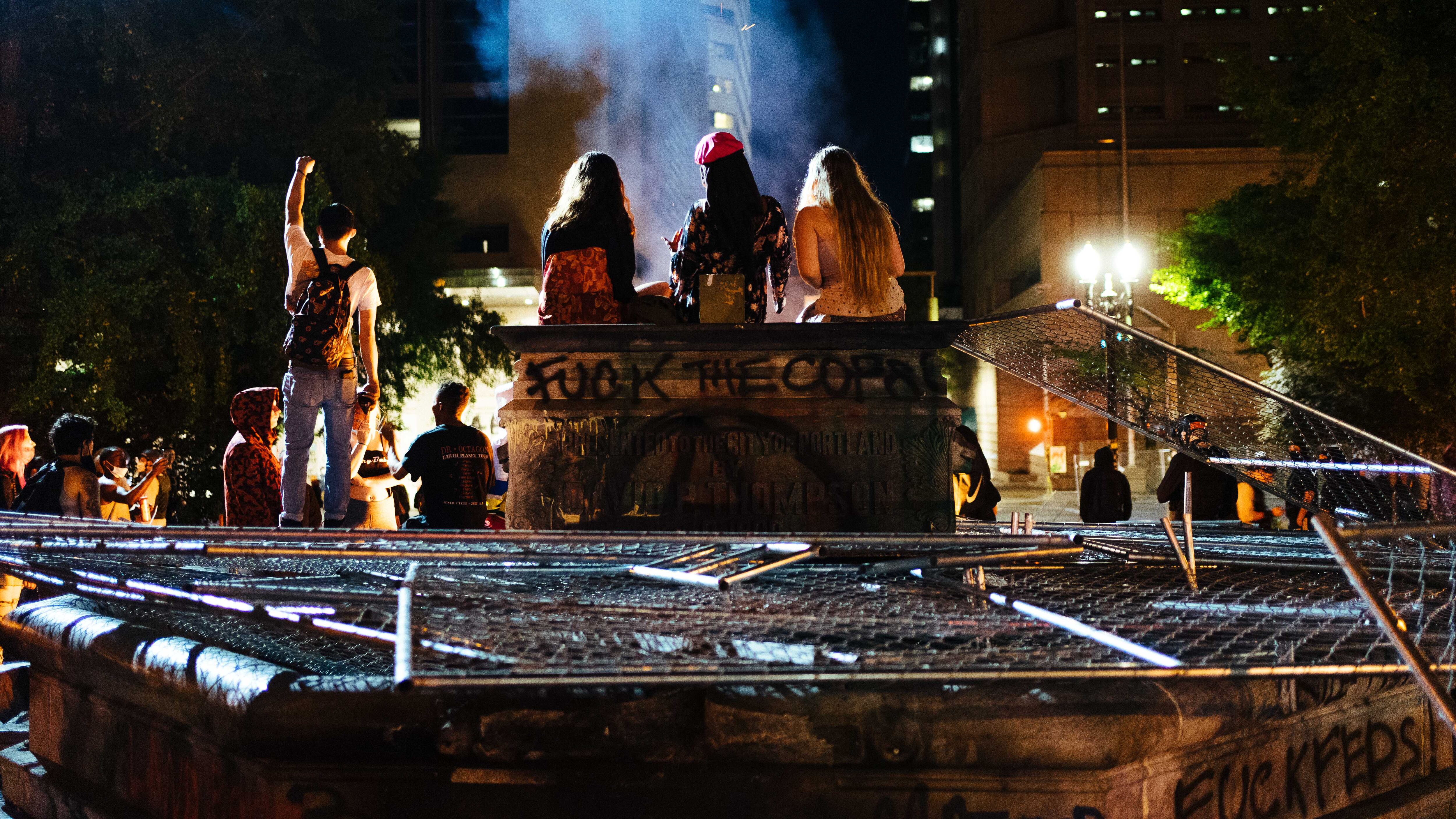Oregon Attorney General Ellen Rosenblum will file a lawsuit in federal court tonight seeking a temporary restraining order barring the Department of Homeland Security and other federal law enforcement agencies from seizing and detaining Portland protesters without probable cause.
Her announcement follows a July 16 report by Oregon Public Broadcasting that federal officers whisked away protesters in unmarked vans—rental vehicles, it now appears.
She also announced that the Oregon Department of Justice and the Multnomah County district attorney would open a criminal investigation into the July 11 injury of Donavan LaBella, whom a U.S. Marshals Service officer shot in the face with a munition.
Rosenblum announced her intention to file the lawsuit in U.S. District Court tonight, as a federal police crackdown on Portland continues against the wishes of local elected officials for the 15th consecutive night. (Disclosure: Rosenblum is married to the co-owner of WW's parent company.)
"The federal administration has chosen Portland to use their scare tactics to stop our residents from protesting police brutality and from supporting the Black Lives Matter movement," Rosenblum said. "Every American should be repulsed when they see this happening. If this can happen here in Portland, it can happen anywhere."
As the top legal officer in Oregon, Rosenblum is asking a federal judge to issue a temporary restraining order against four federal agencies: the U.S. Department of Homeland Security, the U.S. Marshals Service, U.S. Customs and Border Protection, and the Federal Protective Service, which guards federal buildings.
In late June, President Donald Trump created a task force out of those four agencies to defend federal monuments and buildings from protesters. He has chiefly deployed them to one city: Portland, where they have used the wide powers granted to federal police in spite of the objections of local officials.
If a judge grants Rosenblum the injunction, it would limit the authority of federal police to make street arrests without meeting the typical standard held to by cops: probable cause that a crime is being committed.

